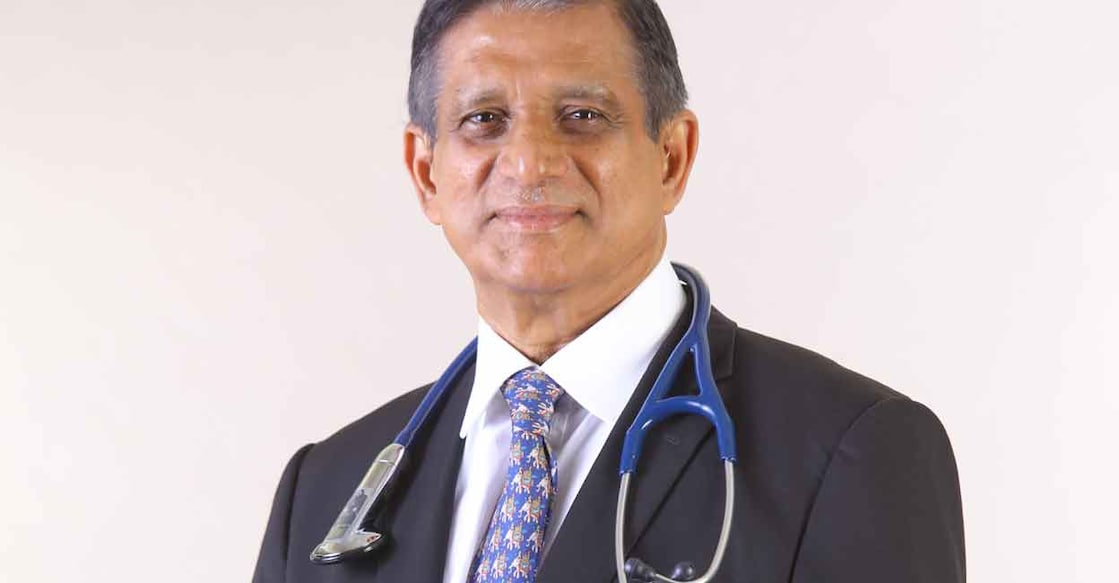Public-private tie-up in healthcare need of the hour: Dr Sahadulla

Mail This Article
In a career spanning 45 years, Dr M I Sahadulla has seen the different sides of the healthcare realms across the world up and close. One of the many lessons the years he worked in different countries and in the government and private sectors is the need for an all-inclusive and collaborative approach when it comes to healthcare. No wonder, Dr Sahadulla, who heads KIMSHEALTH, one of the leading healthcare providers in South India which also has a strong presence in the Gulf, is an ardent advocate of a strong public-private partnership in the healthcare sector. As a leading player in the private sector, he has been calling for effective collaboration with the government sector as he firmly believes that the partnership is inevitable to make quality healthcare affordable and accessible to everyone.
To the sceptics on both sides of the spectrum, he points to the immediate past when the pandemic forced the public and private sectors to join hands. He also cites the efforts going on in several other states towards the PPP shift and urges his homeland, Kerala, to join the bandwagon without delay.
In an interview, Dr Sahadulla, Chairman & Managing Director, KIMSHEALTH and a Fellow of the Royal College of Physicians, Ireland, London, explains why he bats for a PPP model even as both the parties in the proposed plan look at each other with an amount of suspicion.
What’s actually meant by the PPP model in healthcare and what’s the current situation in the country and especially in Kerala when it comes to the model?
When we say healthcare we always think only about hospitals and delivery but the ecosystem actually goes up to a wide range of fields such as manufacturing of medical devices, pharma, medical tourism, medical technologies and insurance. A number of such things could be considered for a PPP model in healthcare. In India, roughly 70 per cent of healthcare, especially the upper-end services, is provided by the private sector. In Kerala, it’s around 65 per cent. The figures show that there is quite a good room for public-private partnership. All over the country, this is being talked about and many other states are exploring the potential of the subject as a policy and even as a separate portfolio. I think it's a good time we also catch up.
Does Kerala have a clear plan for public-private tie-up in healthcare?
As far as my knowledge goes, there is no structured plan in this area in the state. There are individual efforts by private hospitals or doctors or officers in the government sector. So sporadically things are happening. Instead of this, there should be a lot of cohesion between private and government sectors.
How is the PPP model expected to fix the accessibility gap between urban and rural population when it comes to advanced healthcare facilities?
Accessibility and availability can be made much better provided there is a concerted effort for PPP, especially with speciality healthcare. In both urban and rural areas we have more primary and secondary centres. If they are well managed and then you have centres of excellence in tertiary care and quaternary care, the patients can be easily referred (to these facilities). There should be a PPP model in the area. I believe the formulas and finance for that can easily be worked out. We have got master brains in the government and outside. The only thing is our mindset is important.
In fact, already participation is happening. During the Covid time, PPP was at its pinnacle with the private and public sectors joining together without any pride or prejudice. When the oxygen supply was short in private hospitals, the government stepped in with help. Then we have the example of subsidised care. Also during the pandemic, many hospitals dedicated entire buildings to Covid care. There were also instances of the government taking over private hospitals in trouble.
Paediatric cardiac surgery is another instance of PPP in healthcare. The government has an excellent scheme of at least partially reimbursed money. First of all, we must accept the fact that private healthcare is happening in the country at a larger scale and recognition of the good work should be done where it is due. Whether in the government or private sector, we should understand nothing is free. Someone is always paying for a service. Why don’t we join forces just to get the best efficiency out of the resources available?
Could you cite some contributions of your organisation to the PPP model and your future plans?
At KIMS, our neonatology department has associated with the SIT Hospital when an infection control issue happened there years ago. We have also joined Kottayam and Thiruvananthapuram Medical Colleges for some critical organ transplants. We have been running a nutrient supplements programme for TB patients using our CSR funds. Recently we started an awareness programme for schoolchildren on drug menace with the support of the excise department, law academy and the press club.
Another potential area of collaboration is accreditation. There are several government hospitals which can be accredited by National Accreditation Board for Hospitals (NABH). We can help the government equip such hospitals for recognition.
The private sector in different fields is often wary to associate with government institutions because of the perceived problems attached to bureaucracy. Does this perception affect the possible PPP model in healthcare?
On both sides, that perception problem is there. The government thinks that the private sector is always there to rip it off. On the other hand, the private sector thinks that there's red-tapism in the government and joining with it will be a problem. I have travelled around the world and seen the most rationale and intelligent people in Kerala. At the same time, I wonder why can’t we do things better in our own place.
In the private sector also there's red-tapism and inefficiency. I always like to work with the government. I may have had many setbacks but I don’t stop trying.
From your experience, what kind of a change do you want to see in both the private and government sectors for a successful collaboration?
A little bit of an open mind on both sides is necessary. In a large country like India, the PPP in healthcare is indeed the need of the hour. If the government can suggest a committee to study the prospects of it, it would be a great step.


